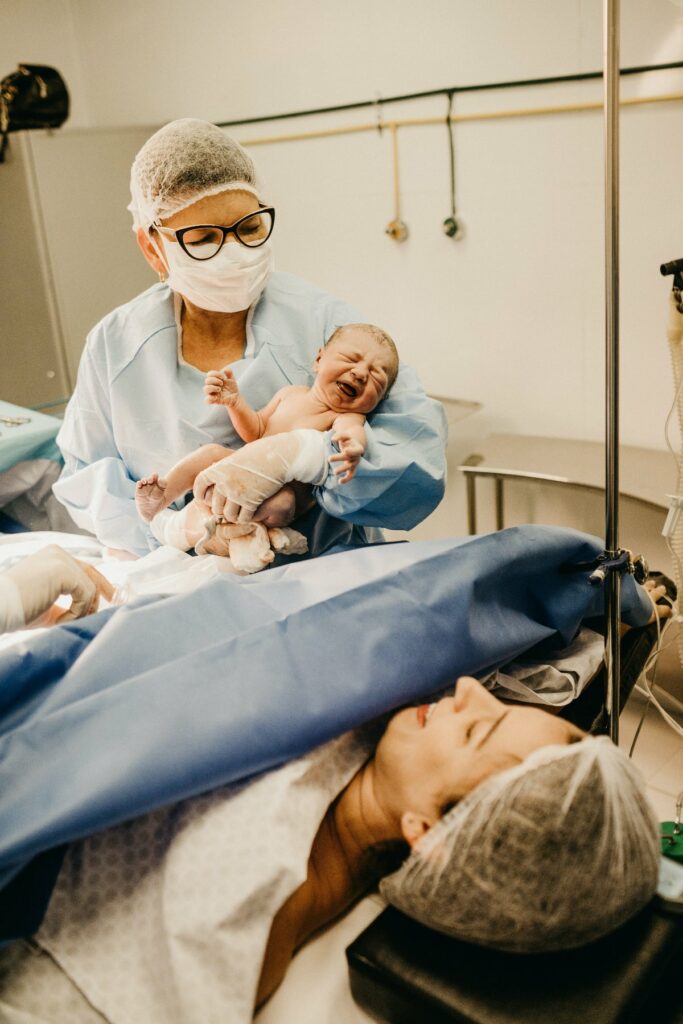In a recent podcast, Alyssa Milano confessed that giving birth reminded her of her previous sexual assault. In a brave admission on the podcast “Me Becoming Mom,” the 48-year-old actor and mom of 2 said that childbirth “triggered all of these memories that I thought I had dealt with” and that during part of son Milo’s birth, she had “one moment of feeling like I was being held down and had things being done to me that I didn’t want, to me, was very reminiscent of being sexually assaulted.”
What a poignant admission and one that is so needed in the discussion around childbirth. I know from my personal experience working with clients with a history of sexual trauma that Alyssa Milano’s story is not uncommon. Although we idealize birth as this beautiful, angelic experience for the excited mom-to-be, the reality is that birth can trigger many unpleasant memories and be incredibly traumatizing.
Childbirth can be very triggering because the woman may feel frightened or out of control of her own body. Not only is the woman lying there half-dressed or naked, with many different medical workers coming in and out, but she’s having immense pain and stress which can mimic the pain or fear she felt during her sexual assault.
Additionally, drugs are also involved. Although these are often necessary for pain relief, sometimes these narcotics can make women feel ‘loopy’ or disconnected from their bodies. This can be doubly traumatic if the woman was drugged or otherwise incapacitated during her sexual assault.
It’s easy to see why childbirth and labor can awaken dark memories for many women. Yes, it’s an exciting and beautiful time, but both our brains and our bodies ‘keep the score’ when it comes to the trauma we have suffered in the past, and we cannot control the fact that certain experiences may unexpectedly trigger these difficult feelings.
Birth is not only the unexpected trigger when it comes to past sexual trauma. Other triggers may include:
- Getting a massage
- Being sedated at the dentist’s office
- Having to disrobe at the doctor’s office
- Pap smears/pelvic exams
- Mammograms
- Unexpected touching, hugging, and other forms of affection, even from people you love
- Getting dressed or showered at the gym or other public place
- Going through TSA at the airport
- Being touched by a yoga instructor or fitness teacher during class
- Reading news stories about sexual assaults or other crimes
- Certain smells, noises, or sounds that remind you of your assault
- Being crowded in public transit with people rubbing against you
- Crowded spaces in general
- Jogging outside alone, walking alone at night, or being alone outside in situation where you don’t feel 100% safe
- Being in an elevator or closed-in space with unknown males
- Television shows that depict sexual assault or violence against women and girls
- Breastfeeding
- Being ‘catcalled’ or approached on the street by men
Sadly, even though sexual trauma is a shared theme in many women’s history, we still don’t talk enough about how this may impact a woman in the delivery room. Doctors aren’t well-versed in helping to support women who are victims of sexual trauma, and some may even pooh-pooh or brush aside a woman’s fear about being unclothed or watched by strangers as she gives birth. There are many things doctors and nurses can do to be more patient-centered and to make sure that they respect their patient’s bodily autonomy. The reality is that 1 out of 6 American women have experienced sexual assault, so the medical community needs to become much more trauma-literate and understanding when it comes to working with patients with a painful past.
That is why I think Milano’s confession is going to help so many women, women who may feel shame or embarrassment that instead of feeling nothing but pure joy about their birthing experience, they felt triggered or even re-traumatized.
Healing is not a linear process, especially healing from trauma like sexual assault. We need to normalize talking about this and helping survivors to know that certain experiences like giving birth or going to the doctor’s office or getting a massage can all be intimate and overwhelming experiences that can unearth those shadows which you thought were long gone.
I hope this conversation also helps women to feel more comfortable talking to their doctors about their needs during labor and beyond. The medical community needs to make strides to make the birthing process and doctor’s visits as a whole more supportive of victims of sexual assault. Just as we talk about things like epidurals and birthing positions and breathing exercises before we give birth, we should also be given space to talk about sexual trauma and how that may inform the way we choose to birth. This is an incredibly intimate and vulnerable time for a woman, and she should be given all the support necessary to birth in a way that does not re-traumatize her.

